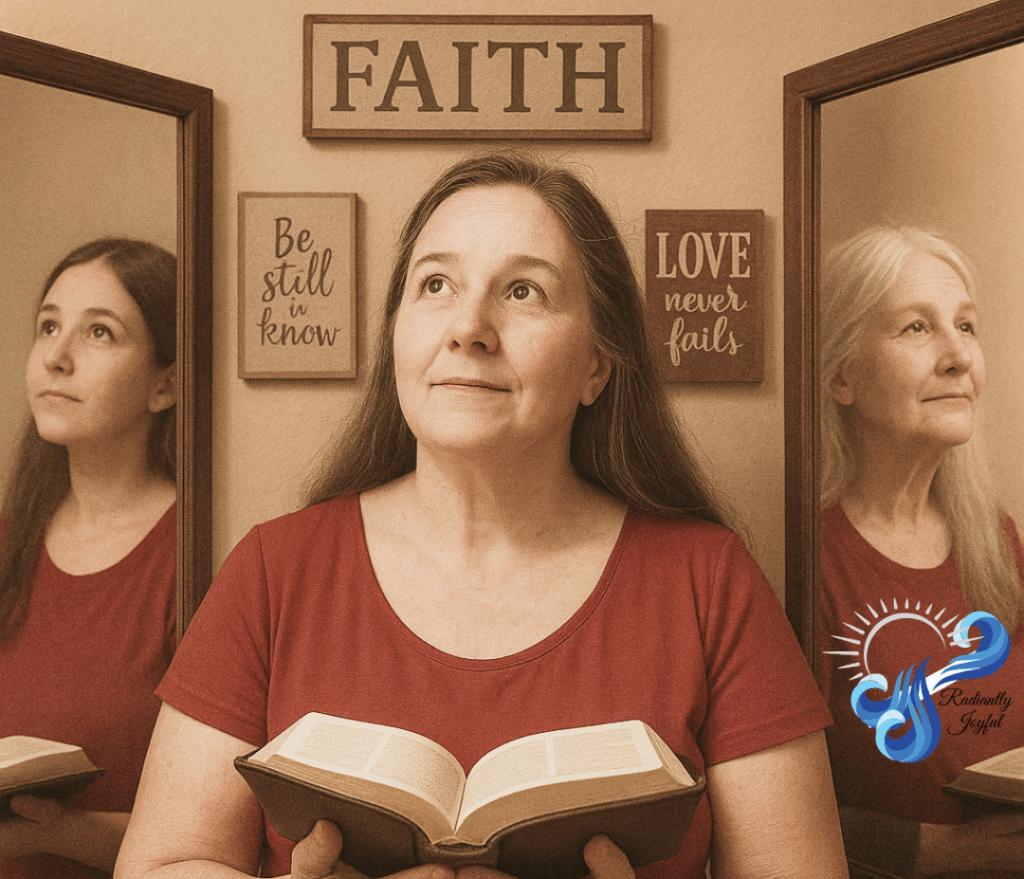Stuck in the Middle (the Younger Older Woman)
When we lived and worshiped in Germany, a twenty-something pregnant woman walked into the church building. People often came into our building, since our congregation met in the middle of downtown. Even parts of her story were not unusual. The baby’s father had recently deployed to Afghanistan. She was a German national, but because they were not married, she had no support (financially or medically) from the military community. However, the less-than-typical part of her story is that she did not come looking for a handout. She came looking for a community.
I was only a few years older than she was, with a four-year-old and a new baby of my own. On that day, I became the “older woman” from Titus 2. I did not step into that role because I was wiser, stronger, or more mature. I stepped in because I had a foundation of faith. Even so, I have always wrestled with that role.
I was raised in a Christian home. As a preacher’s kid, I was constantly surrounded by Bible study and truth. During my single years, I gave little thought to what my role should be within the faith community. After I married and moved across the ocean with my husband, I experienced the shift for the first time. That move stripped away my existing support net, placing an ocean between me and my friends and family. We could still talk, but I couldn’t just drive to see them for an afternoon or a weekend. I had to learn how to build a new network in a new place, through some big challenges, including a miscarriage. That transition taught me to rely more deeply on God than ever before.
Now, at 45, serving in leadership, I still feel the tension. I am both a younger and older woman at the same time. I continue to learn and seek guidance from mentors, even as others look to me for wise counsel.
In Ephesians 4:1, Paul encourages us to “walk worthy.” Whatever our age, our calling is to step into purpose with humility, even when we feel unprepared. As Mordecai reminded Esther, each of us is placed in our unique position “for such a time as this.” God equips us through our experiences and uses them to help others.
In the cultural context of Paul’s time, women were often married in their early teens. A woman in her thirties could already be considered “older.” The instructions Paul gave were not limited to elderly women, but to any woman with enough life and faith experience to guide others with grace. The call to teach and mentor was given to those who had walked a little farther down the road, not necessarily those who had reached the end of it.
We are not called to impress. We are called to live faithfully and to share what is good. The quiet, often unseen acts of faithfulness matter. Your love, service, and kindness are seen by God and remembered by others. In this way, faith is handed down from person to person. The Church grows through slow, quiet, and faithful relationships.
Perhaps you can think of people who offered you kindness and friendship. As they shared their stories, from struggles to triumphs, you experienced comfort and encouragement. Your story could do the same for someone else! Letting your light shine, even in uncertainty, might be what leads someone else out of a storm and into safe harbor.
I often teach classes, mentor younger women, and support families. At the same time, I continue to learn from women older than me. Being an older woman in the faith is not about being the most experienced or the most confident. It is about being faithful right where you are.
This calling is beautiful, but it can also be heavy. Even Jesus withdrew to quiet places to pray and rest, reminding us that rest is not weakness—it’s wisdom. In Matthew 11:28, He says, “Come to Me, all who are weary and burdened, and I will give you rest.” If we want to pour into others, we must also allow space for God to pour into us.
Caring for your soul is not selfish; it is essential. Set healthy limits, remembering that Jesus is the Savior, you are not. “No” is a complete sentence. Seek someone who can encourage and pour into your life. Spend time with God for renewal and preparation, embracing rest as an act of obedience. God honors stillness as much as service.
Mentorship begins when you invite someone into your walk with God and are willing to walk beside her in hers. Start small. Ask someone, “How can I pray for you?” Invite a younger woman into your everyday life. If you’re looking for a mentor, start with prayer. As you seek leadership, look for a life marked by obedience rather than charisma. Sometimes all it takes is asking, “Could we meet or talk sometime?”
In this middle stage, I notice those struggling and speak truth to those who seek guidance from me. I point them to the truth from Scripture, offer empathy, and pray for them. Mentorship is not about having all the answers. It is about showing up, walking together, and pointing toward Christ.
Titus 2 is not an assignment for the distant future, but an invitation for today. Someone already sees you as her older woman in the faith. Walk with her. Invite her into your story. Share what others have shared with you.
You are not stuck in the middle. You are walking the path of faith. God has given you the qualifications you need. You never know who is watching, needing exactly what God has given you.
